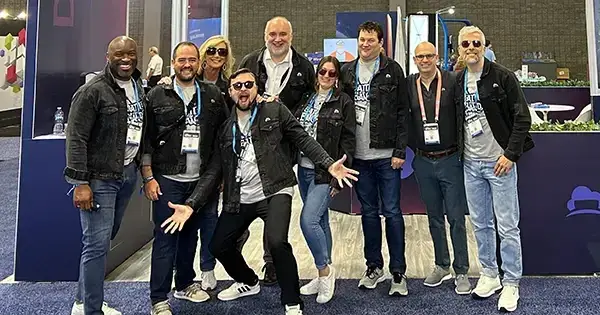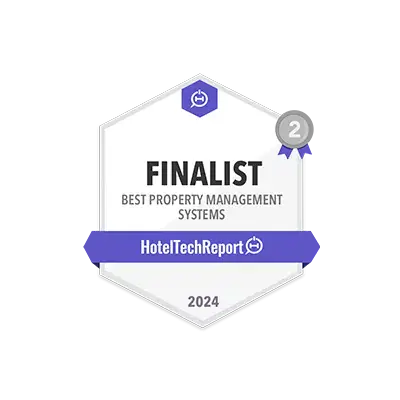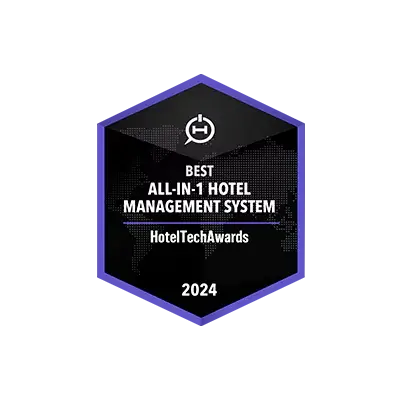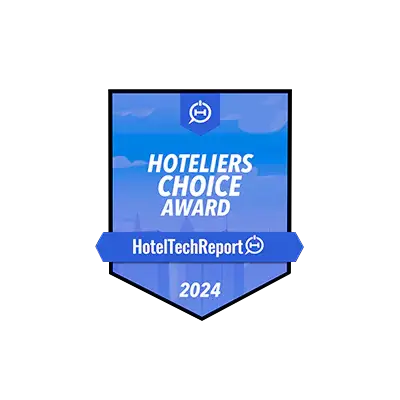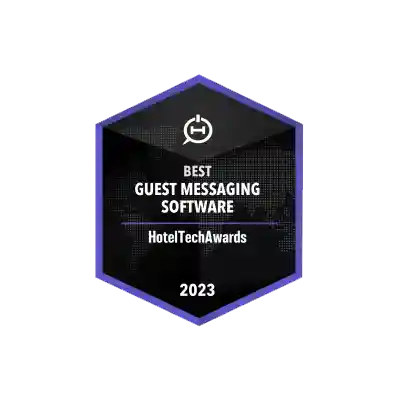
By Cloudbeds
Company culture has become a widespread buzzword over the past few years. As the economy recovered and businesses became more stable, business owners placed a greater focus on creating a company culture that people liked. In the hospitality industry, culture is of the utmost importance. Employees’ happiness reflects in their work and in their interactions with each other and guests. There are many procedures you can put in place to create a winning company culture. Your employees and customers will be happier and your business will flourish.
Employees are the face most hospitality businesses, and so there happiness almost directly translates into guest satisfaction. When you think about the brands who have clearly defined their offering, like Ritz-Carlton and Four Seasons, you realize their employees make or break the customer experience.
1. Define your vision
Start by creating a brand vision for your property. Pinpoint what your property wants to be known for. Your vision can focus on above and beyond customer service, budget accommodations, adventuring, partying, etc. In any instance, your property can pair your vision with a company culture that embraces happy employees and creates a positive environment. While it’s not easy, it’s not impossible.
Here are some examples of hotels that do it well:
- Hard Rock Hotels: Their brand tagline is: “We create authentic experiences that rock.” They say that music is their differentiator and philanthropy is their soul. They work to create an environment that does well by doing good to others. Employees love their culture because they know their employer is committed to helping others.
- Ritz-Carlton: Their brand tagline is: “We are Ladies and Gentlemen serving Ladies and Gentleman”. Ritz-Carlton is the epitome of great service. Their culture empowers employees to make the guest experience the best it can be. This sense of empowerment makes employees feel like they’re in control.
- Four Seasons Service Culture, like Ritz-Carlton, is committed to servitude. They have looked at each and every single detail to ensure their guests have the best experience possible. Four Seasons knows their greatest asset is their employees, so they create open lines of communication. They respect each other’s contribution and importance.
2. Hire the right people
First and foremost, you want to hire the right people. Hiring the right people starts with understanding what personality traits and skills you’re looking for. It’s a common phrase that people hire for attitude over aptitude, because you can teach skills, but you can’t teach attitude.
Here is an outline of a few tactics to set your hiring up for success:
- Know the position: Understand the position are you hiring for. Each role not only requires specific skill sets, but also certain levels of emotional intelligence. Know what you need to look for during an interview that won’t appear on a resume.
- Identify Ideal Personality Traits: You can’t make people like other people, teach empathy, or create a teamwork mentality from scratch. Forbes’ acronym WETCO, is helpful when hiring for customer-facing positions:
- W for warmth: this is simple human kindness
- E for empathy: this is the ability to sense what another person is feeling
- T is for Teamwork: this is an inclination toward working together
- C is for conscientiousness: candidates are detail orientated, including an ability and willingness to follow through to completion
- O is for optimism: this is the ability to bounce back and to not internalize challenges
Include team members in the hiring process. For team-orientated positions, you want to ensure the entire team feels as if they have a say in new additions. Be hospitable during the interview process. Overly exhaustive or intense interviews work for some positions, but you should practice what you preach. Keep the candidates’ best interests in mind during the entire process.
Think long-term and look for candidates who want to grow their career with you. With that said, many people seek mentorship when they join a new company. When you do hire someone new, make sure you offer guidance and opportunities to grow.
3. Communication and transparency
Communication and transparency go hand-in-hand. After you’ve found great people to work for you, make sure to check-in on them and talk with them regularly. Property news and updates should be openly shared with your employees on an ongoing basis. Keeping everyone in the loop will help everyone feel a part of the same team, as well as give guests the best experience possible.
Open communication is about sharing victories and losses, according to Fast Company. However, this is easier said than done. You have to make sure that people feel comfortable sharing their thoughts and feelings without fear of punishment.
Listen to your employees and your guests, both in person and online. Getting a clear sense of your environment will help you keep your company culture in check. Think about holding periodic temperature or pulse meetings to get a sense of what’s going on. You can also use private online forums to obtain honest and open feedback. Some employees won’t feel comfortable bringing up questions and concerns in a public forum. A private online-forum gives employees the opportunity to bring a topic up anonymously.
4. Empower your employees
Your employees should feel like they can create solutions for your customers. This is especially true in a service-orientated company. If a guest has a problem, your employees should be able to deal with them without having to ask permission 100% of the time. Ritz Carlton, for example, is a brand that’s world-renowned for their commitment to customer service. Every member of the Ritz-Carlton staff has $2,000 to spend on every single guest per incident, according to this Forbes interview. This allows all their team to mitigate problems quickly without having to jump through hoops.
Not every property can or should attach such a large amount of money per guest, but implementing a similar program may be beneficial.
An empowered team is one that makes good decisions based on the situation. You can create this kind of culture with the right training and hiring people with the right attitude.
5. Reward your employees
Reward your employees for good work! In a service-orientated position, you should have a plan to reward employees who go above and beyond. For example, if an employee is mentioned in a comment card X amount of times in a month, you should reward them. Or, if your property has an upsell strategy in place, you should reward employees who meet and exceed their goals.
6. Identify problems
Identify problem areas and squash them. Sometimes people are the problem. Sometimes it’s the processes or systems. Employees don’t always work out. You may have hired someone thinking they are great for one position, when in reality they might be great at doing something else. And sometimes people just aren’t the right fit your property. If a person isn’t meshing well with your team, they can create a toxic work environment. One bad seed can ruin the entire batch. If you pay attention to your culture and listen to your team, it will be easy to identify negative influences.
In some instances, the processes are the problem. If your employees are forced to go through a lot of paperwork or several steps to complete a task, it can cause conflicts. If your employees feel like they work in a bureaucracy, it’s going to take a toll on your company culture.
7. Open, communal spaces
Open spaces that encourage people with different job functions to come together is a great tactic Fast Company offered. But, in a hospitality-oriented setting this may be a bit more difficult. You can encourage people with different job functions to come together (i.e. front desk, kitchen, cleaning, etc.) with spaces separate from hotel guests. Does your property have an employee room? Or are they separated by divisions? Think about creating a place for your entire staff to congregate. It will foster a sense of community and give people the chance to meet one another.
8. Organization structure
Your property’s organizational structure will likely have a huge impact on your company culture. In a bureaucracy, one person or a small group of people make all the decisions. These types of organizations often leave employees feeling as if their opinions don’t matter. Instead, try to structure your organization so employees at every level feel empowered. This will increase communication and help everyone make better decisions. It’s important to remember that good ideas and solutions can come from anyone, regardless of title and position.
9. Lifelong learning
Creating a great culture is an ongoing process. In order to create a culture that lives and grows with your organization, you want to make changes on a continual basis. Quarterly trainings, mentorship opportunities, and one-on-one sessions can help foster a positive culture. Provide opportunities to better your staff and teach them new skills. Learning opportunities are almost endless. You could offer job-specific trainings like upsell techniques. But, you could also get creative, such as a wine pairing class or a local brewery tour to increase local knowledge. As a hospitality travel organization, there are countless ways to build knowledge in fun ways.
Conclusion
Creating a great company culture is no easy feat. Different motives drive every organization. Take the time to define what your property values and build a system around maintaining good communication. Your employees have a lot to tell you about what’s working and what’s not. Take pride in your employees and create an environment where they can thrive.
A great company culture will permeate your business’ customer-facing brand, which will improve brand perception. Happy employees produce positive results and affect the guest experience. This, in turn, improves your bottom line.




